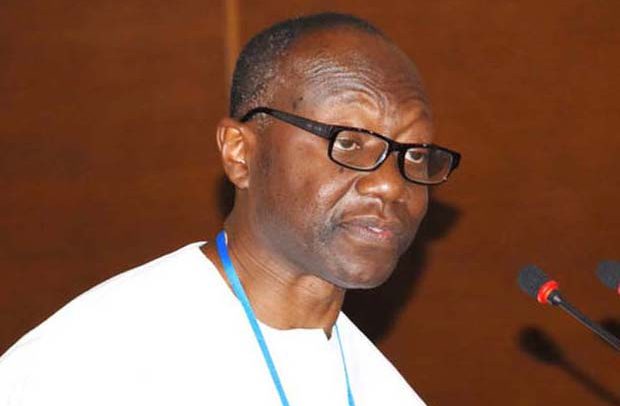Ken Ofori-Atta, Finance Minister
THE MINISTRY of Finance says it has received financing from the World Bank towards the cost of the preparation of the Development Finance Project which supports the establishment of the Development Bank Ghana (DBG) and the design of its future products and services.
The DBG will provide wholesale lines of credit and partial credit guarantees (PCGs) to eligible participating financial institutions (PFIs) for on-lending to MSMEs, and support the development of a digital platform for MSME finance, among other activities.
According to the World Bank, government is establishing the $250 million DBG project to help accelerate the structural transformation of the economy and job creation.
“The DBG is expected to help address market failures in the Ghanaian financial markets and unlock capital for medium and long-term private investment in key sectors. The design of the DBG was informed by international best practices, recommendations of the task force established in 2018 by the Minister of Finance, and the feasibility study completed by PwC India with financial support from DFID. The feasibility study concluded that, at the prevailing market conditions, there is a role for a new DFI in Ghana that “caters to the long-term financing needs of the sectors that will be of significance for economic transformation and job creation for the Ghanaian economy,” it stated.
The study validated the DBG’s focus on sectors with high economic potential (agribusiness, manufacturing and high value services) and enterprise segments facing the largest financing gaps such as SMEs. The study also recommends tailoring the DBG’s proposed product offering to market needs and gaps discussed above, including SME’s lack of collateral, limited availability of long-term financing and high transaction costs of delivering financial services to SMEs in the absence of digital solutions.
Finally, it validated the establishment of a green field development bank, given the opportunity to adopt a fundamentally different market enabling operating model that incorporates international best practices and attracts private and foreign capital.
As the only wholesale DFI in Ghana, the DBG will be uniquely positioned to play a catalytic role and complement existing private financial institutions and state-owned DFIs. By offering long-term wholesale financing, credit guarantees, factoring and other services; the DBG will help financial institutions lengthen the maturities of their loans and increase overall lending to specific sectors and market segments.
“The wholesale model will ensure that the DBG does not compete with private sector financial institutions and state-owned banks and DFIs. The government is establishing the DBG in line with the emerging thinking on development finance, which expects DFIs to deliver their mandates in a financially sustainable manner,” a World Bank study said.
Government has made progress in the establishment of the DBG. The MoF has registered the DBG and developed its constitution and shareholders agreement. The selection of the board and permanent management, development of operational policies among other critical activities are underway.
Government has used DFIs in the past to address some of the financing gaps discussed above, but their impact has not been transformational.
The National Investment Bank (NIB) was the first Ghanaian DFI established in 1963 to promote rapid industrialization in all sectors of the economy. The Agricultural Development Bank (ADB) was created in 1965 (through the transformation of NIB’s Agricultural Department) to provide credit to agriculture. Since their creation, both institutions have gone through multiple restructurings, operating currently as commercial banks regulated and supervised by BoG.
The World Bank continues that “Their focus on their respective target sectors has diminished due to lack of term funding, poor financial performance and change of business models. Established in 2016 through an amalgamation of three government DFIs, the EXIM Bank has the mandate to develop and support trade between Ghana and other countries and build Ghana’s competitiveness in the international marketplace. These DFIs have largely suffered from poor performance, mainly high NPLs. In addition, the EXIM Bank – which was established through an Act of Parliament – is currently not supervised by BoG or any other regulator.”
BY Samuel Boadi


